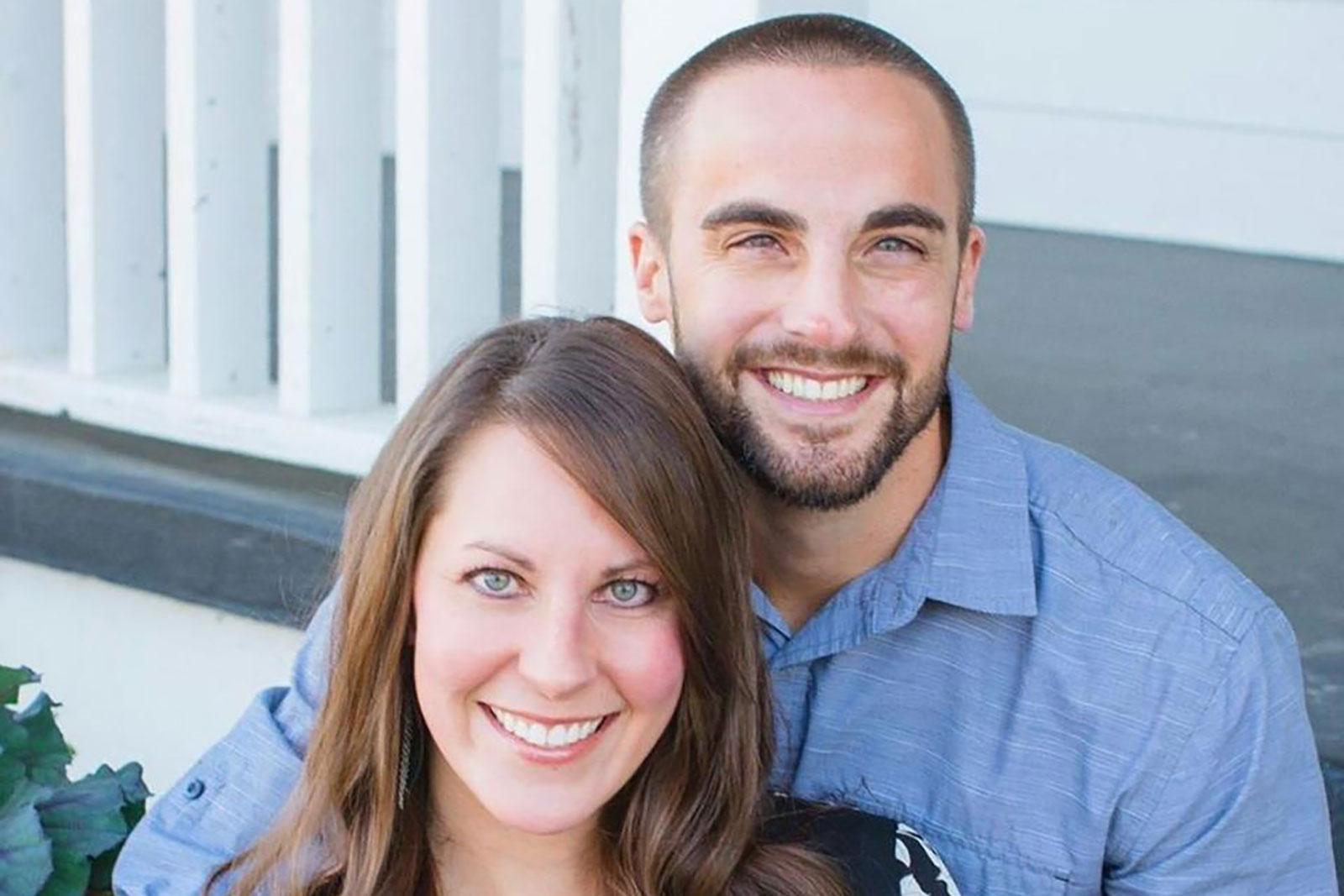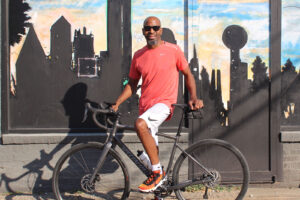
“Tomorrow I’ll Know” Parts One, Two and Three are part of our new online essay series, cW Slice of Life. Click here to check out other Slice of Life essays.
“Hello there! How have you been over the past year?” my doctor asks as she closes the door to my exam room and pushes aside the blue privacy curtain.
“Well, good until a few weeks ago,” I respond shakily.
With a concerned tilt of her head, she asks me to explain.
I take a deep breath as I rest my right hand on my belly and say, “It all started about a month ago. I have had a significant amount of stomach pain.” This is not my first rodeo, so I quickly pepper her with a barrage of answers in anticipation of her follow-up questions, without giving her an opportunity to ask even one.
I say, “The pain changes. Sometimes it burns, sometimes it’s a dull ache and other times I feel a sharp pain. It’s in my abdomen, my right side and my lower back. There is a little nausea sometimes, too. I have been under a crazy amount of stress lately, so maybe it’s that. Maybe I have an ulcer. I also always have a lot of muscle pain and tightness down the right side of my body, so it could be that. I haven’t experienced any other issues. My bathroom habits haven’t changed, I do still have an appetite, but I am feeling bloated. I’m sorry,” I continue, laughing anxiously at my insistence at maintaining a one-sided discourse, “I’m really nervous right now.”
I am about to know.
“I can understand that,” my doctor says, smiling kindly as she types her username and password into the computer in the corner of the small room. She pauses for a moment as she reviews the information on the screen. My heart stops, then just as quickly begins to race as I feel myself tense up.
She’s looking at your blood test results right now. You know she is. Don’t ask what they are. You’ll find out soon enough.
I am about to know.
I absentmindedly start twisting the silver band on the ring finger of my right hand, around and around, a nervous habit I picked up years ago. My hands once again get clammy as I opt to mentally bargain with God one last time, just in case my earlier desperate pleas weren’t enough to convince Him. Maybe one more will seal the deal. Anyway, it won’t hurt to try, will it?
My doctor turns away from the screen toward me, interrupting my anxious, darting thoughts as she says, “Well, your CA-125 is still within normal limits—”
“Oh my God it is?!” I interrupt her, my voice laced with both relief and skepticism as my hands fly up to cover my face. The fear and exhaustion of the past few weeks are finally exposed in the form of tears rolling down my cheeks. My doctor reaches over to the strategically placed tissue box on the counter next to her and tugs at the lone tissue standing alert, ready and willing to absorb whatever emotion comes its way — whether it be distress, fear or relief. Or any combo of the sort.
“I’m sorry,” I say, taking the tissue from her. “I have been freaking out. So incredibly anxious, and I normally call to get my results the second I get home from the test, but I didn’t this time because I was terrified to know the truth. It’s really normal?” I dab the corners of my eyes and noisily blow my running nose with the tissue, any consideration for embarrassment out the window.
Because now I know. Oh my God, I know.
She smiles sympathetically and says, “Yes. It’s well within normal range. Your CA-125 is 11.”
This is, by all accounts, exactly what an ovarian cancer patient wants to hear. That one number, a result of the ovarian cancer blood test from a couple days prior, holds the key to the rest of your existence. There is no screening test for ovarian cancer, but for most women, the CA-125 result is a good indicator of recurrence. A reading of anywhere from one to 35 indicates no evidence of disease. Well within normal limits, indeed.
“Let’s do your physical exam as well though,” my doctor says as I nod and sniffle. “We want to be completely sure. Go ahead and scoot down to the end of the table for me,” she continues, as she rolls the stool she is sitting on toward the exam table.
As I slide my sheet-covered body down to the edge of the table, I say, “Honestly, my stomach and back have been feeling the same as before I was diagnosed. I thought I was dying. I thought the cancer was back and this was it. I am so relieved. I was too terrified to ask you for the results.”
“It certainly was a good call to bump your annual appointment up,” she says, as she pokes and prods on my belly. “I understand how terrifying it is to wait when you know something isn’t right. Thankfully, everything feels completely normal, so hopefully that will ease your mind now. I do want to do a quick rectal exam, just to be sure—”
“Ugh, I was afraid you were going to say that,” I cut her off, cringing. Every muscle in my nether regions tightens as I recoil from my doctor’s approaching gloved hands. Her compassionate look reinforces my safe assumption that I am not the only patient that doesn’t include this part of the exam on my Top-10 List of Favorite Pastimes. “I know it’s necessary, though. Let’s just get it over with. Get on up in there,” I say, as I wave my hand dismissively in the air over my hindquarters in an attempt to lighten our current situation. She can’t enjoy this part any more than I do.
She laughs in response and says reassuringly, “It will only take a second.”
“Mmmmmhmmmm,” I respond distractedly as I squeeze my eyes shut, dig my fingernails into the palm of my hand and will my rear end to relax.
“Take a deep breath in for me,” she says.
I inhale deeply and can’t help but grunt as she completes the final part of my exam. Rectal exams bring a whole new meaning to the phrase “butt hurt,” y’all.
“All normal!” she says as she scoots away from the exam table, pulling her gloves off and throwing them in the trash.
I KNOW. Now I REALLY know.
“Thank God,” I exhale, as I lift my head and shoulders off the table. “I’ll be honest with you; I am interested to see how I feel and if the pain starts to subside now that I know. It’s so confusing… the slightest twinge of pain causes anxiety, which causes more pain, and before you know it, you have no idea what hurt in the first place. It’s a completely all-consuming vicious cycle. Now that I know, I wonder if I am going to start feeling better.”
“That’s completely understandable and also very likely,” she responds. “I know you are already aware of this, but your experience is very common with cancer survivors.”
“Yes, it’s not the first time for me, and it won’t be the last,” I say. “I just don’t have the freedom to shrug off things like this. Not with my history,” she vehemently shakes her head in response.
“No, unfortunately, you have to stay on top of things like this much more than the average person,” she agrees.
But at least for now I know.
As I sit up and reposition the white sheet over my legs, we discuss ordering a CT scan, just to be completely sure that all is well. She types the orders in the computer as relief washes over me. We still have to figure out what’s causing the pain, but at least I have checked the worst-case scenario off the list. We finish our conversation, and she leaves the room with a wave that says, “See you next year.”
I allow myself a second to process all that just happened before getting dressed and checking out. I raise my eyes to the ceiling and murmur a “thank you” before pulling the sheet from around my waist and reaching for my clothes.
My phone vibrates and I look down at the screen to see a text from Blane. “How did your appointment go? What did they say? Are you doing OK?”
I eagerly tap out a response to let him know that everything is OK. I’ve been a nervous wreck, but everything is OK.
As I am about to put my phone in my purse to leave the room, it vibrates one more time. “I am so relieved,” Blane says. “I’ve been a nervous wreck all day, too. I love you.”
A few moments later, I walk out of Texas Oncology and into a world that has continued to spin in the midst of my terror, thinking that my life was coming to an abrupt halt. As the doors slide open and I walk into the bright afternoon, I feel more alive than I have for weeks. Once again, I will start the process of “carrying on.” This is not the first time I have “carried on,” and it will most certainly not be the last. The fear may loosen its hold on me for longer periods than it used to, but it always finds me. Like a boomerang tossed high in the air, it is certain to come back. How could it not? I have long surpassed my expiration date, but that doesn’t necessarily mean the bullseye has been removed from my back. It will always be there.
But at least for now, I know.







